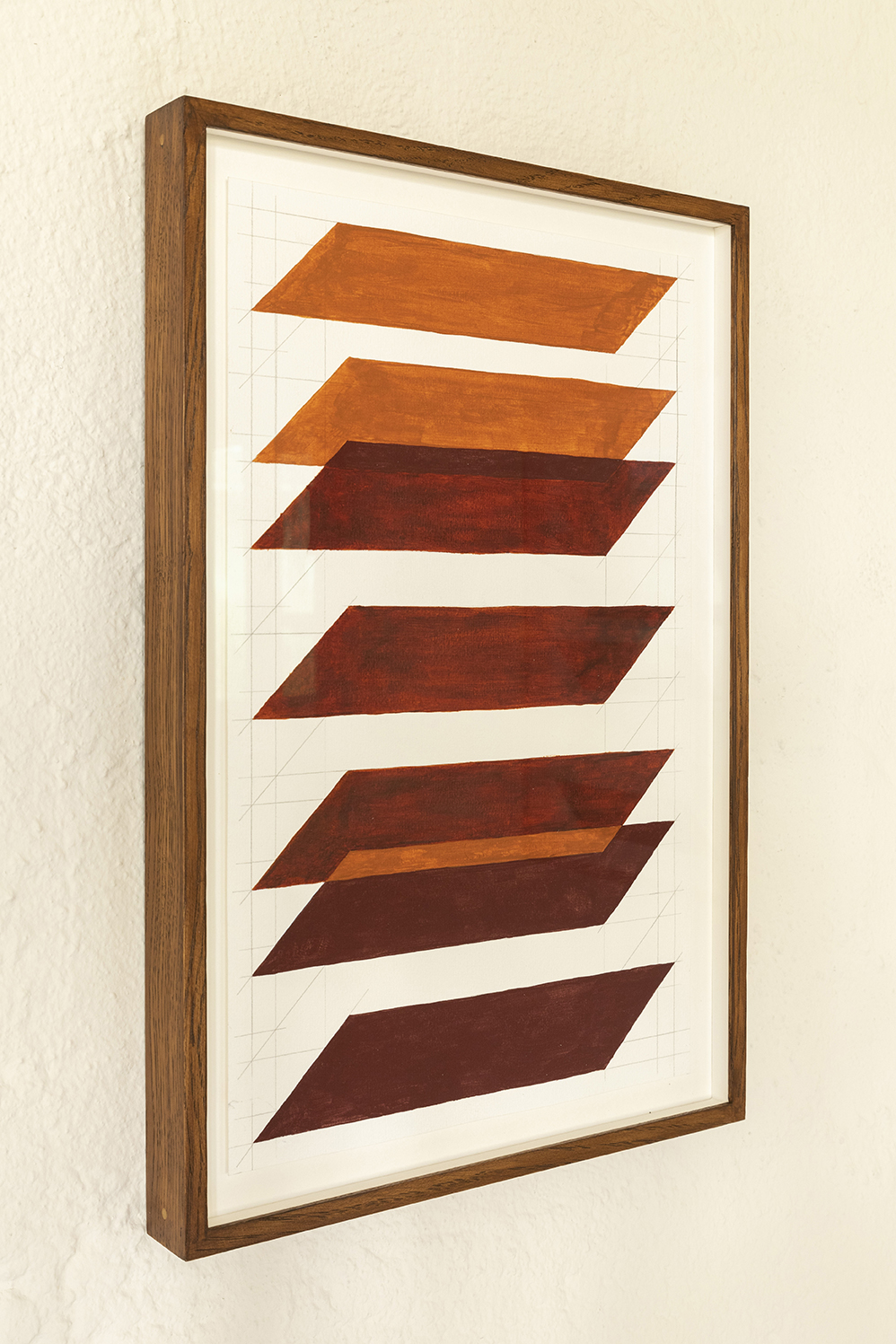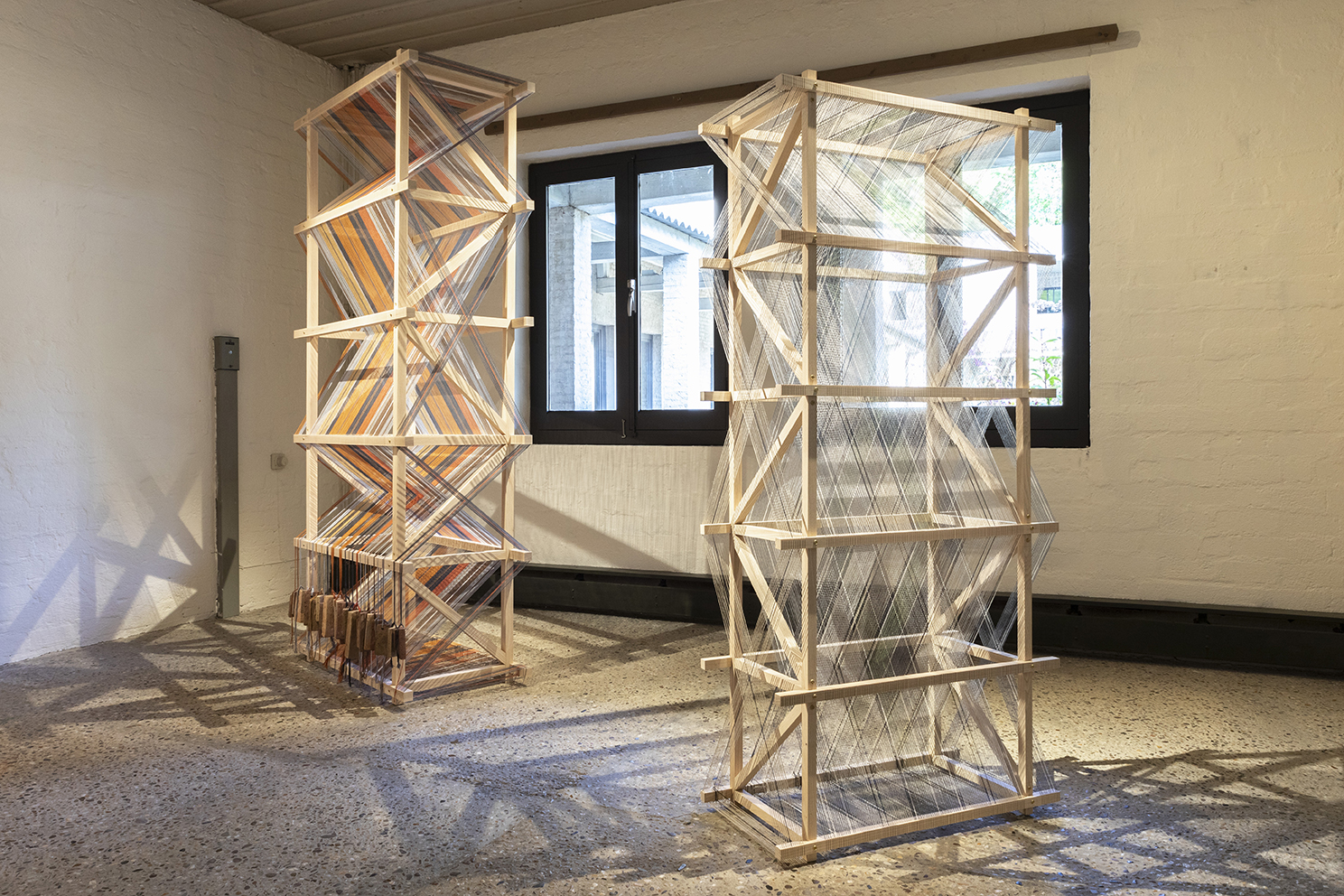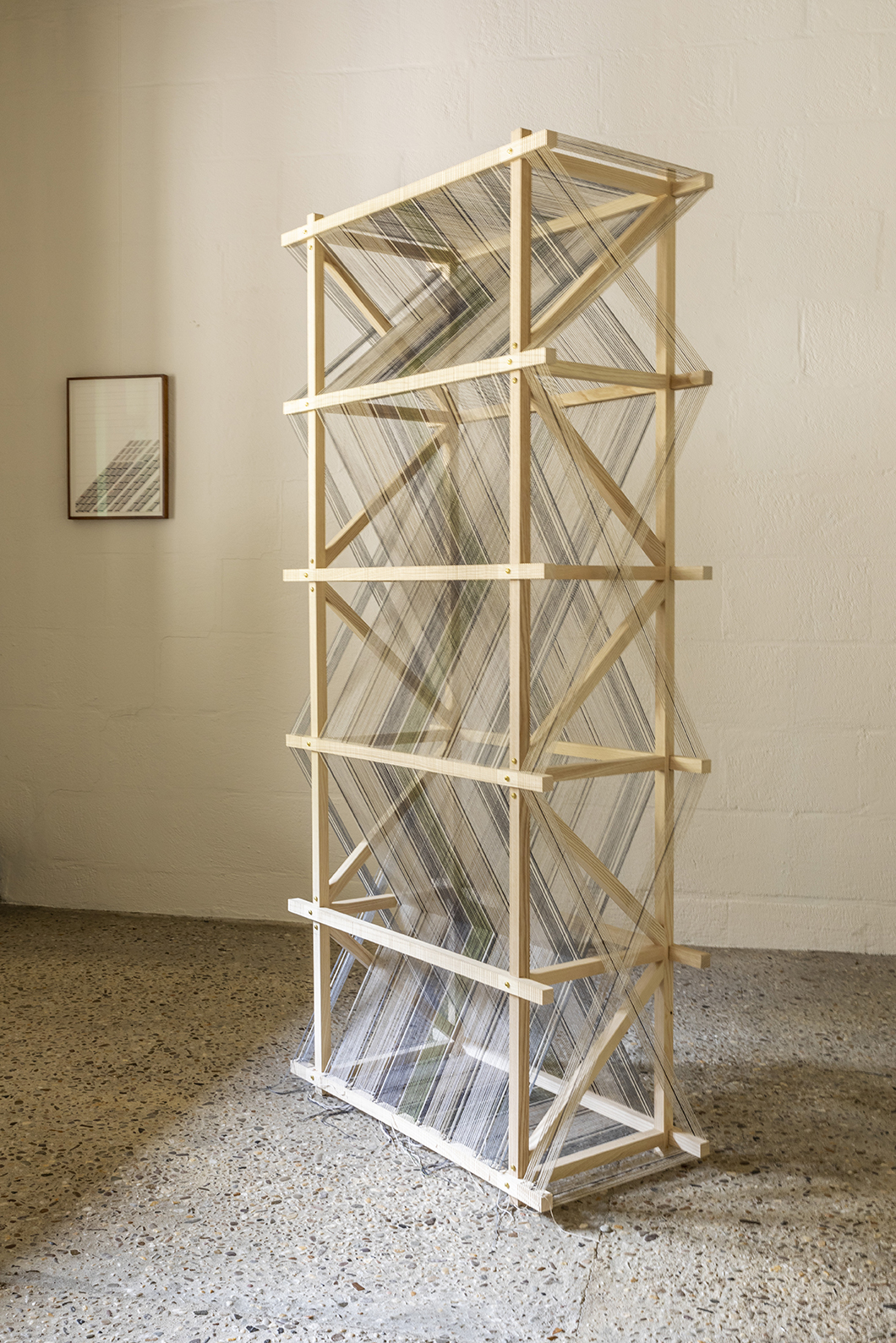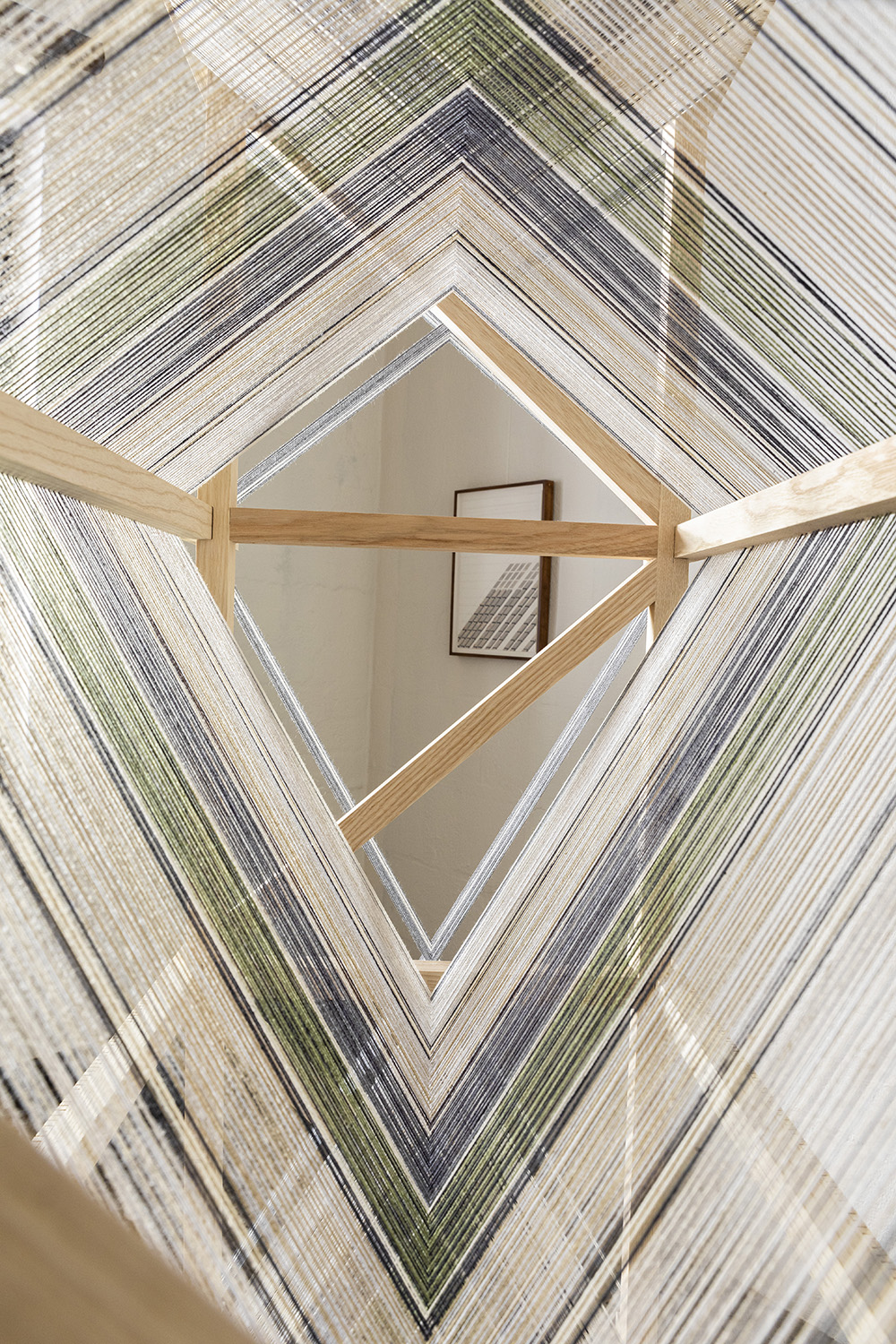Grey to red, 2022
Installation with sculptures and drawings
The works in this installation explore prehistoric warp-weighted looms, the loom weights that are the only remnants of these traditions of weaving, as well as the former local brick industry of the Vecht-region. In the work, I seek to overlap the rhythm of the weft and the warp, with that of brickwork and masonry bonds. The warp threads in the sculptures are tensioned by self-baked loom weights from the local river the Vecht.
The weaving patterns in the sculpture are derived from the textile tradition of the Scottish tartan; a weaving technique that also stood at the basis of the fenestration plan in the architecture of Dom Hans van der Laan. The colours in the tartan reflect the landscape surrounding this former monastery: the blueish-greys from the local river clay, the orange-red and purple-browns from baking bricks out of this clay; as well as the browns, greys, and greens from the sober colour scheme of the Bossche School.
Installation with sculptures and drawings
The works in this installation explore prehistoric warp-weighted looms, the loom weights that are the only remnants of these traditions of weaving, as well as the former local brick industry of the Vecht-region. In the work, I seek to overlap the rhythm of the weft and the warp, with that of brickwork and masonry bonds. The warp threads in the sculptures are tensioned by self-baked loom weights from the local river the Vecht.
The weaving patterns in the sculpture are derived from the textile tradition of the Scottish tartan; a weaving technique that also stood at the basis of the fenestration plan in the architecture of Dom Hans van der Laan. The colours in the tartan reflect the landscape surrounding this former monastery: the blueish-greys from the local river clay, the orange-red and purple-browns from baking bricks out of this clay; as well as the browns, greys, and greens from the sober colour scheme of the Bossche School.
'Textiles are older than architecture and are probably the first form of building and therefore delineation. Walls in various historic, primitive huts around the world often form a woven, textile infill of a wooden framework. These soft walls, often woven plant or animal materials, form the prototype for the further development of the roof and wall in architecture. For example, the origin of the German word Decke includes both the meaning blanket and ceiling.'
- excerpt from essay Correcties (2022)
- excerpt from essay Correcties (2022)






Grey to red (2022) is part of the solo-exhibition One to seven, grey to red, three to four, tread to thread
Buitenplaats Doornburgh, Maarssen (NL)
06.10.22 - 08.01.23
![]()
![]()
![]()
![]()
![]()
![]()
![]()
Buitenplaats Doornburgh, Maarssen (NL)
06.10.22 - 08.01.23







